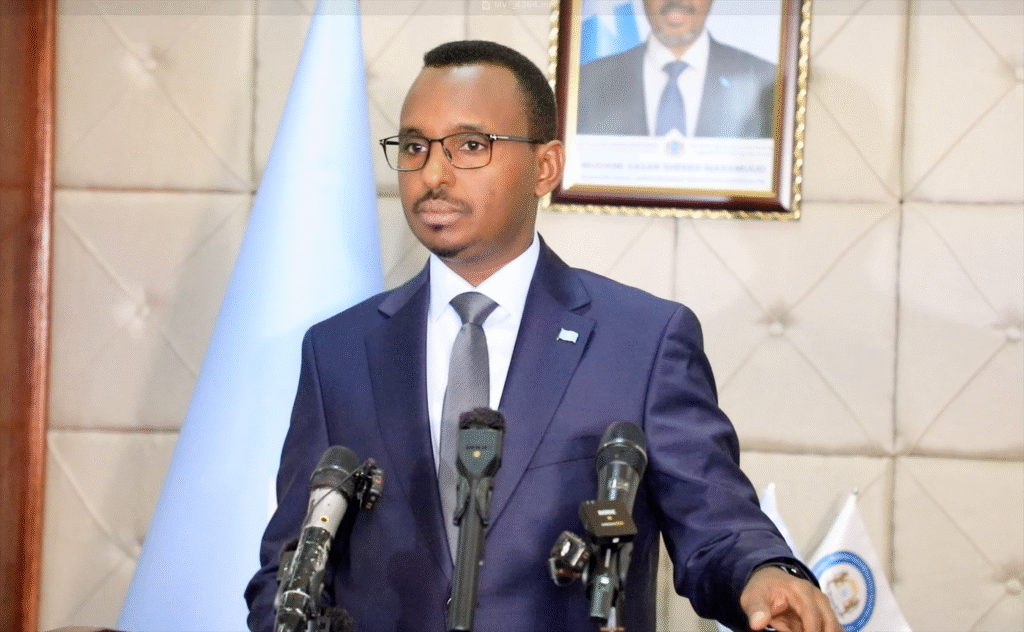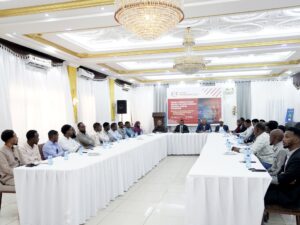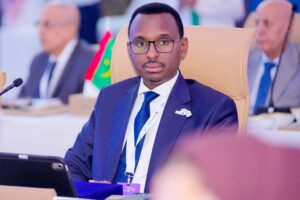Mogadishu, August 23, 2025: The Office of the Auditor General of the Federal Republic of Somalia has officially released its 2024 Annual Audit Reports, marking a significant milestone in Somalia’s continued journey toward transparency, public sector reform, and institutional accountability. The Office completed and published a total of thirty-eight audit reports during this cycle, representing the highest number of audit deliverables issued in a single period in the history of the institution. This remarkable achievement signals a step forward in the national effort to strengthen public financial management and good governance.
The scope of the audits includes financial, compliance, performance, forensic, information systems, and special audits. These reports provide insight into the effectiveness of financial controls, legal compliance, and institutional performance across the federal government, while offering recommendations aimed at reducing systemic risk and improving service delivery.
In his press statement, Auditor General Ahmed Isse Gutale praised the technical and leadership teams of the Office for their determination, resilience, and professionalism. He described the 2025 reporting cycle as a turning point in building a credible, reliable, and responsive Supreme Audit Institution in Somalia. The Auditor General reaffirmed that the publication of audit reports is not an end in itself but a catalyst for broader reform and national dialogue. He emphasized that the audit process is intended to support institutions in improving, building systems, and restoring public trust in government functions.
Among the significant findings disclosed in the 2024 audit cycle is the inability to independently verify the disbursement of over $153 million in social benefit expenditures reported under Note 12 of the Federal Government of Somalia’s financial statements. This expenditure was related to the Baxnaano Project, implemented by the Ministry of Labour and Social Affairs and funded directly by the World Bank. The World Food Programme (WFP) was responsible for delivering this support in the form of cash or in-kind assistance to vulnerable households.
According to the amended agreement between the FGS and WFP, particularly Annex I, Section III, WFP is required to provide the Somali government with detailed beneficiary data to facilitate proper oversight and verification. During the audit, the Office of the Auditor General requested this information from both the Ministry of Labour and Social Affairs and the Ministry of Finance. However, it was confirmed that WFP had not yet submitted the required beneficiary data or payment confirmations. Consequently, the audit team was unable to independently verify whether the intended beneficiaries received the reported funds.
The Auditor General stated that while these findings remain critical, the Office will continue to engage constructively with institutions and stakeholders to address the root causes of non-compliance and ensure follow-up mechanisms are enforced. He reaffirmed that the objective of audit reports is to provide reliable information for reform-minded leaders and to encourage improvements in how public resources are managed and accounted for.
Nevertheless, the Office of the Auditor General remains committed to its mission of promoting accountability, integrity, and good governance in Somalia. It continues to build partnerships across government, development partners, and regional peer institutions to ensure that audit findings lead to tangible change and improved public service delivery.





